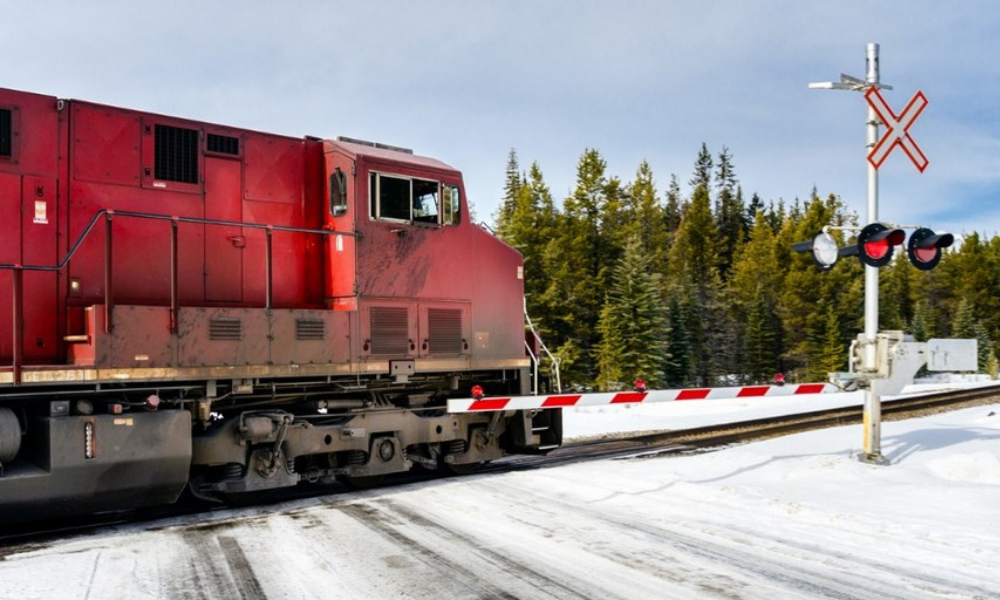'The timing could not be worse,' says CFIB, and will create more uncertainty in challenging time

A work stoppage at Canadian Pacific (CP) Rail has started, and the timing is unfortunate, says one employer group.
“The timing could not be worse for our members,” say Corinne Pohlmann, senior vice-president of national affairs, and Jasmin Guenette, vice-president for national affairs, at the Canadian Federation of Independent Business (CFIB).
“As many businesses rely heavily on rail services to send and receive their goods from Canadian and international suppliers, the work stoppage will further disrupt their operations and create more uncertainty at a time that is already challenging for many businesses.”
Currently, only 35 per cent of businesses have returned to normal sales, while debt levels and share of businesses considering bankruptcy remain high, according to the CFIB. Also, 89 per cent of small businesses are impacted by supply chain challenges.
Three in 10 business owners have seen their business' costs increase by more than 20 per cent due to supply chain issues, while 39 per cent are waiting more than a month for shipments.
In January, CFIB reported that three in 10 (31 per cent) employers said their business is in bad shape, with only 29 per cent saying it is in good shape.
“The work stoppage will cause additional burdens on many of these businesses and put their future and the livelihood of their employees at a greater risk,” say Pohlmann and Guenette.
CP, TCRC trade barbs
CP has claimed that while it was still engaged in negotiations facilitated by federal mediators, the Teamsters Canada Rail Conference (TCRC) withdrew its services and issued a news release misrepresenting the status of the talks.
“We are deeply disappointed that, in the final hours before a legal strike or lockout was to potentially occur, the TCRC negotiating committee failed to respond to the company's latest offer that was presented to them by the federal mediators," says Keith Creel, CP president and CEO.
"Instead, the TCRC opted to withdraw their services before the deadline for a strike or lockout could legally take place. The TCRC is well aware of the damage this reckless action will cause to the Canadian supply chain."
TCRC claims that the work stoppage was initiated by company management during a labour dispute. Unlike a strike, in which employees refuse to work, a lockout is initiated by the employer.
"We are very disappointed with this turn of events," said Dave Fulton, TCRC spokesperson at the bargaining table, in a press release sent out on Saturday. "Canadian Pacific management must be taken to task for this situation. They set the deadline for a lockout to happen tonight, when we were willing to pursue negotiations. Even more so, they then moved the goalpost when it came time to discuss the terms of final and binding arbitration."
CP “chose to put the Canadian supply chain and tens of thousands of jobs at risk,” he said.
But CP disputed the statement, saying that the TCRC press release “completely misrepresented the truth” and the work stoppage was initiated by the TCRC.
In February, Canadian and American officials warned that the lack of vaccination exemptions for cross-border truck drivers will be detrimental to the supply chain. “The removal of these exemptions is ultimately unnecessary, and we cannot afford to lose any more truck drivers who transport food and other vital supplies across the border.”




